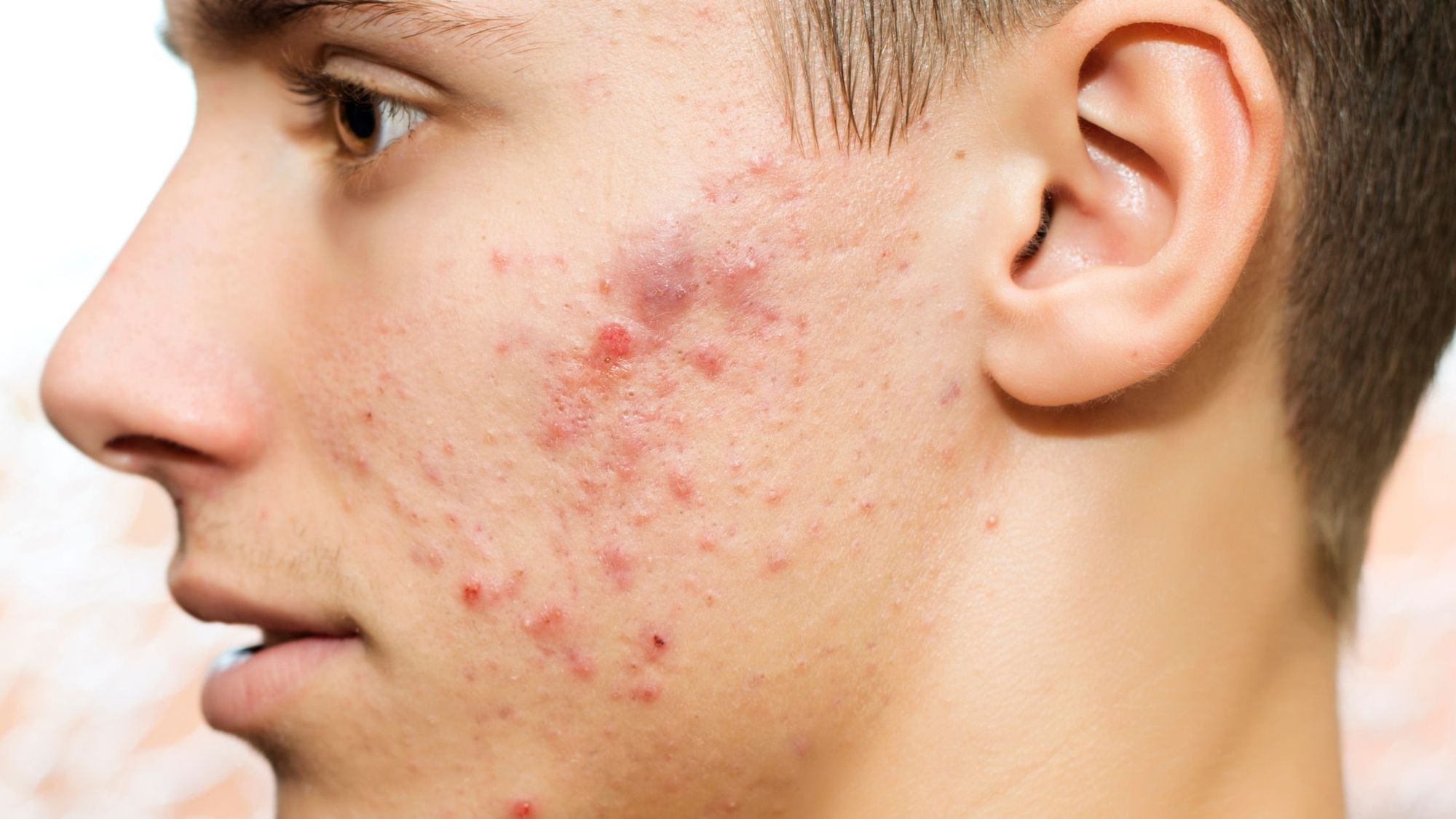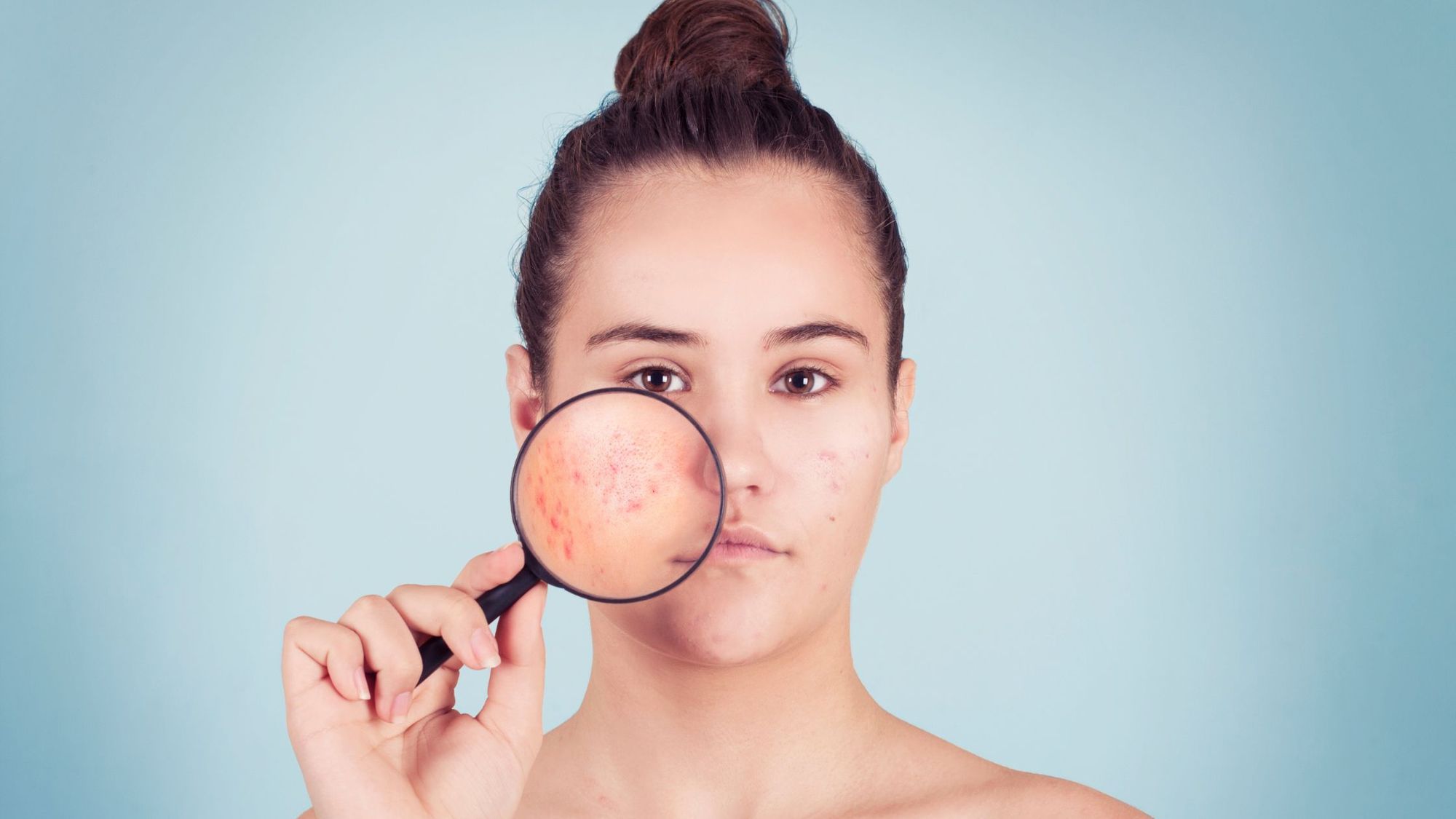
We all remember our first acne breakouts. For many of us, we first started worrying about this embarrassing condition as teenagers, quickly rushing through crowded hallways and hiding. What a surprise, then, to see our skin breakout again as adults, but you don’t have to worry.
Contrary to popular belief, acne is not just a teenage problem. Adult acne is a common skin condition that affects many individuals, with a study observing that acne persists in adults, especially women in all age groups above 20 years old. Through it all, acne is just as frustrating for an adult as it is for a teen to face.

What is Adult Acne?
Adult acne refers to the collective appearance of pimples, blackheads, whiteheads, and other blemishes on the skin in individuals over the age of 25. This type of acne typically appears on the chin, jawline, and cheeks. Unlike teenage acne, adult acne tends to be more persistent and can last for several years.

Causes of Adult Acne
In general, acne breaks out because of dead skin, oil or dirt building up in their pores, leading to uncomfortable and sometimes painful inflammation.
Several factors can contribute to adult acne. One of the main causes is hormonal changes. Hormonal fluctuations, especially in women, can lead to an increase in oil production, which can clog pores and cause breakouts. Women may experience acne flare-ups during menstruation, pregnancy, and menopause.
Stress is another contributing factor to adult acne. When individuals experience stress, the body produces more cortisol, which can cause an increase in oil production and inflammation, leading to more build-up, and eventually, acne breakouts.
Diet can also play a role in adult acne. Consuming high amounts of dairy, sugar, and processed foods can cause an increase in insulin levels, which can trigger the production of androgens, leading to acne breakouts.
Lastly, genetics can also contribute to adult acne. If an individual’s parents or siblings have a history of acne, they are more likely to experience acne breakouts themselves.
Treatment Options for Adult Acne
Treating adult acne can be challenging, especially with the overwhelming amount of skin treatment products out in the market, but there are several effective treatment options available. Here are some of the most common options:
- Topical Treatments: These medications are applied directly to the skin and work by killing bacteria, reducing inflammation, and unclogging pores. Common topical treatments include benzoyl peroxide, retinoids, and salicylic acid.
- Oral Medications: For more severe cases of adult acne, oral medications may be necessary. Oral antibiotics such as tetracycline and doxycycline can help reduce inflammation and kill bacteria. Oral contraceptives can also be prescribed to women to regulate hormones.
- Chemical Peels: This type of exfoliation treatment removes the outermost layers of the skin, helping to reduce acne scars and pigmentation. A chemical solution is applied to the skin, causing it to peel and reveal smoother, clearer skin.
- Laser and Light Therapy: A more recent form of treatment, laser and light therapy work by targeting and killing bacteria, reducing inflammation, and shrinking oil glands. This type of therapy can be an effective treatment option for individuals with moderate to severe acne, and
Genetics and Skin Conditions
Genetics can play a significant role in determining an individual’s skin type and susceptibility to certain skin conditions. The genes that an individual inherits from their parents can affect the amount of oil their skin produces, the texture of their skin, and their susceptibility to acne, rosacea, eczema, and other conditions.
That makes your skin health unique, which is why consulting a dermatologist can help you understand which treatments would suit your condition best. Alternatively, you can also uncover your genetic skin profile with CircleDNA’s test, among many other skin health insights. From UV light sensitivity to skin cancer risks, you can feel more comfortable in your own skin knowing that you have the knowledge to make real change for your skin and overall health.





